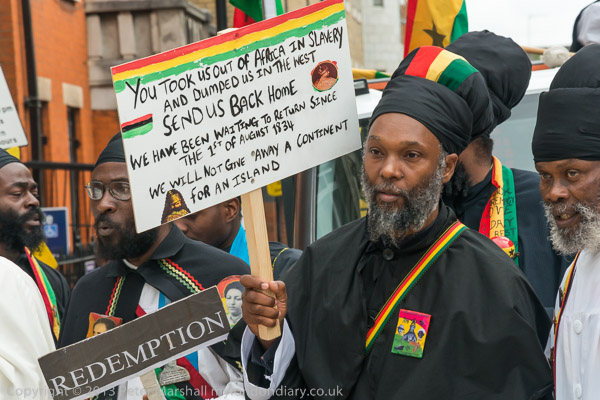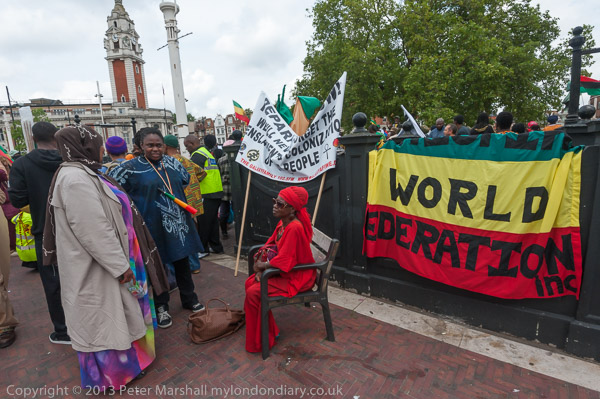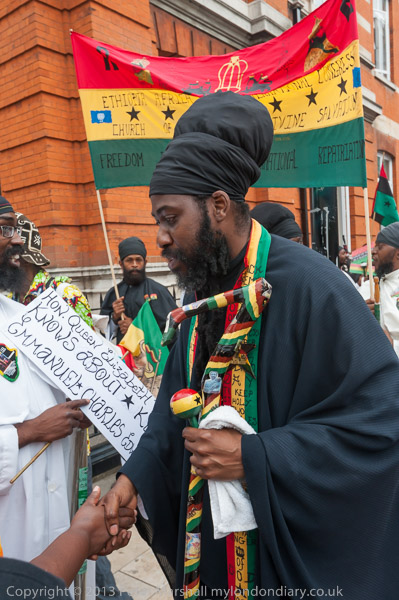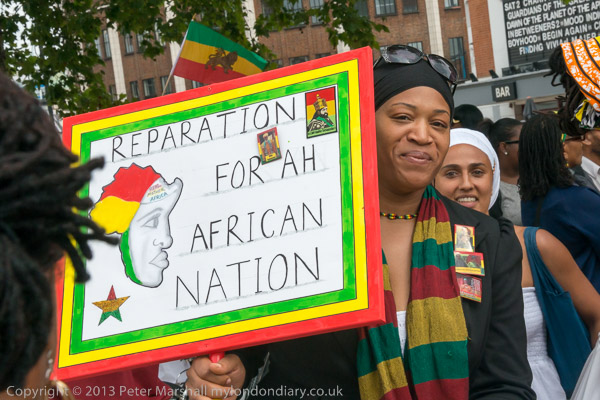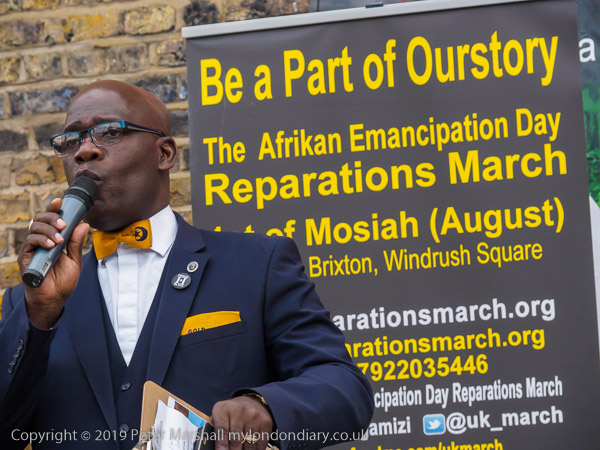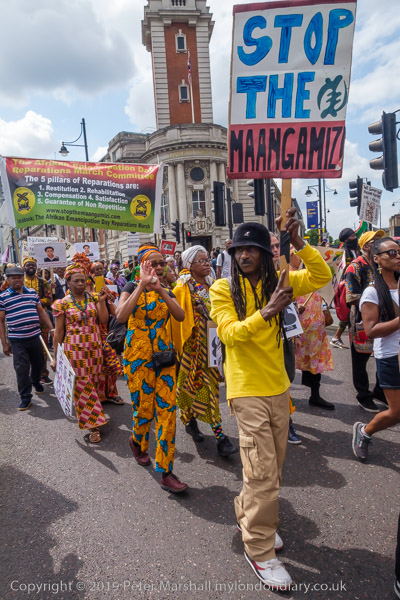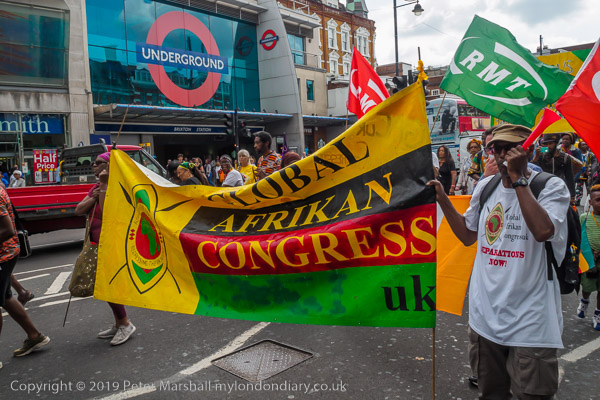Abolition of the Slave Trade Act: Bicentenary: On Sunday 25th March 2007 I was in Brixton and Clapham where commemorations were taking place on the 200th anniversary of the bill to abolish the Atlantic slave trade being given royal assent by King George III on 25 March 1807. It was a great step forward but despite this bill, slavery “remained legal in most of the British Empire until the passing of the Slavery Abolition Act 1833.”

The previous day I had photographed the “Anglican Church’s walk of witness to mark the abolition. The Church Of England has much to repent, with many of those who profited greatly from the ships that transported some 12 million African people over the years being pillars of the church and supporting it financially.“

As I continued on My London Dairy:
“When Christopher Codrington died in 1710 he left his Barbados plantations to its missionary society, who at least at first continued his regime of forced hard labour, punishment with the lash, iron collar and straight-jacket, and, at least for some years to brand its enslaved Africans across their chest with the word “society”. Even though the church claimed to have made various improvements in conditions, 4 of every 10 Africans bought by the society still died in their first 3 years there in 1740. Despite the efforts of abolitionists, slavery continued until made illegal by the 1833 act, which provided the church with a very large financial reward in compensation.”
This procession had been accompanied from its opening service in Whitehall Place by a small group who had walked from Hull, the birthplace of William Wilberforce who had led the fight for the abolition in Parliament. They had taken turns to march in a yoke and chains and ended their walk in Victoria Gardens at the Buxton Memorial Fountain erected in 1865 to mark the ending of slavery in the British Empire in 1834.
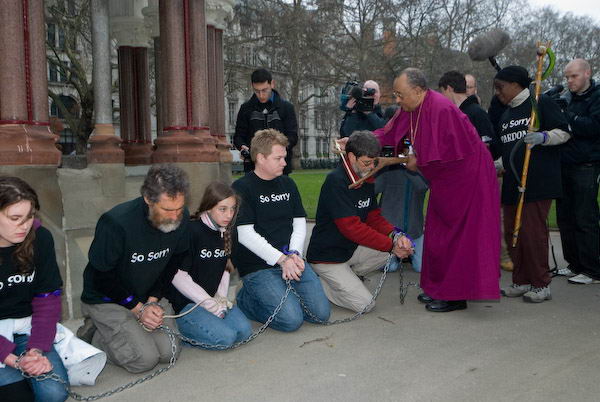
After photographing a ceremony on Lambeth Bridge acknowledging the 2704 ships that left the port of London to carry enslaved Africans the march then continued in a silent remembrance of those who died in the ocean crossings to Kennington Park. I left them to photograph a second march coming to join them from Holy Trinity, Clapham.

On Sunday 25th I began at Windrush Square in Brixton where another commemorative event was taking place, organised by the Brixton Society. After drumming, gospel music and speeches about the abolition people planted bulbs in the grass and there were prayers, The event then moved on to celebrating the contribution of those of black Afro-Caribbean origin to life and culture in Britain now with a number of speeches and then more gospel singing.

After a lunchtime walk by the Thames I went to Clapham, the spiritual and physical home of the abolition movement, where the London Borough of Lambeth had organised a commemorative walk.
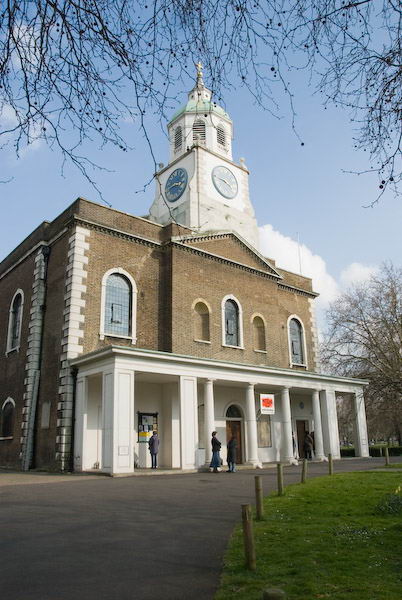
This started at Holy Trinity Church, where the Clapham Sect at the centre of the movement, including William Wilberforce, Granville Sharp, John and Henry Thornton, John Venn, Zachary Macaulay and others had worshipped. But as tour guide Steve Martin pointed out Clapham was also home to many who had made fortunes from the trade and opposed the abolition, with both sides worshipping in the same parish church.
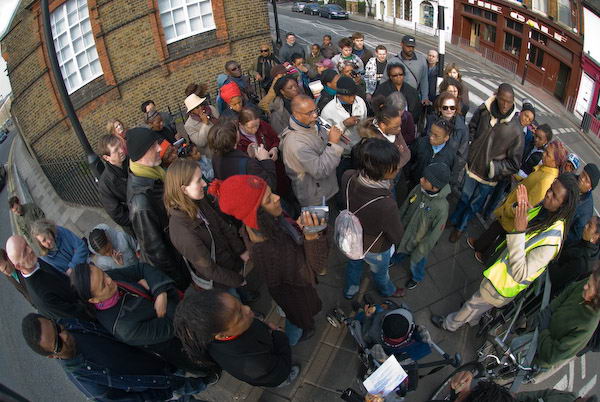
You can read much more about these events on My London Diary, and I won’t copy it all here, but here are my two opening paragraphs:
There is no escaping that all of us who live in Britain – whatever the colour of our skin or our personal history – are now benefiting from the proceeds of the trafficking of African people and their forced labour in our colonies over around four centuries. Fortunes made from slavery helped to build many of the institutions from which we still benefit, including many of our great galleries and museums. Slavery founded many of our banks and breweries and other great industries, and made Britain a wealthy nation.

But it is also true that the same wealthy elite that treated Africans so callously exploited the poor in Britain. My ancestors were thrown off their land and probably some were imprisoned for their religious beliefs by these same elites. Almost certainly some of my forebears were a part of the movement that campaigned against slavery and called for and end to the trade in human beings, although equally certainly they had little or no political power at the time, and probably no vote.
Much more on My London Diary
Flickr – Facebook – My London Diary – Hull Photos – Lea Valley – Paris
London’s Industrial Heritage – London Photos
All photographs on this page are copyright © Peter Marshall.
Contact me to buy prints or licence to reproduce.
